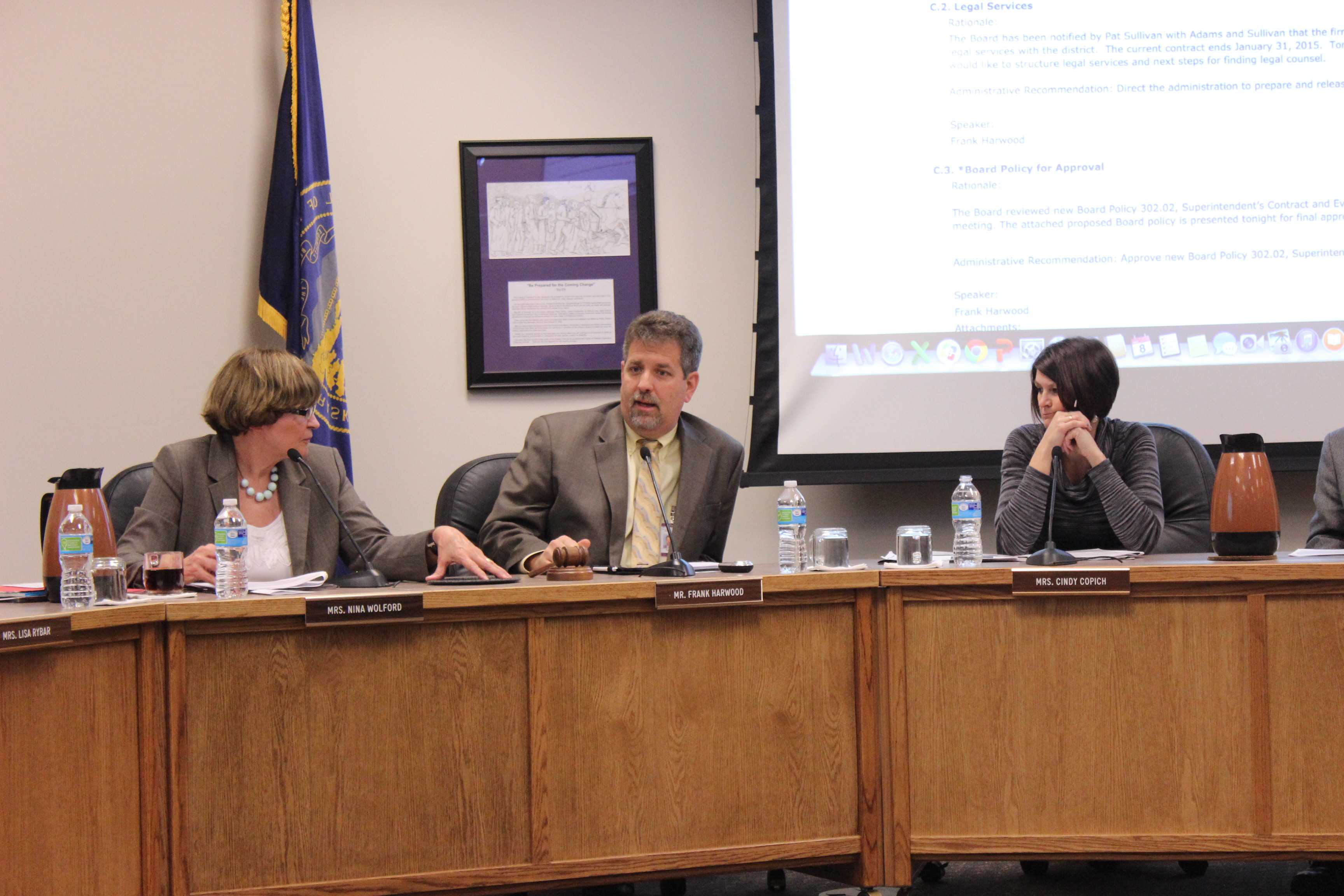
The Jan. 5 board meeting saw a crowd of people ready to speak on the grading pilot program.
Nearly half of the people attending the board meeting were there to hear or speak about the controversial study, many of whom stood at the back of the room, cramped behind extra chairs which had been brought in.
Eight people commented on the topic, including three Bellevue East students and a professor at Creighton University.
Bellevue East juniors Nathaniel Crouch, Colin Crouch, and Jessica Harms were part of a Challenged Based Learning (CBL) project that aimed to investigate the grading study.
“We interviewed eleven teachers and got their opinion on [the grading study] and then we surveyed probably 350 students at our school,” junior Katie Hanes, who was a member of the CBL team, said.
The students who spoke did not agree with many of the changes the grading study would make.
One of the main objections with the new grading protocol is that homework is not counted towards the final grade. As a result of this, students may not see an incentive to do their homework.
Many, including Parent Teacher Association vice president Anita Cook, take issue with the policy in the grading study for that reason.
“Repetition is a good thing. Children learn from doing,” Cook said, who emphasized the importance of homework.
Without this critical feedback loop, Cook and others argued that students will not do the homework and thus be at a disadvantage.
“The impression is there is no point in doing homework,” Colin Crouch said. “I am concerned these bad habits will continue into college.”
Other comments touched on the importance of homework teaching responsibility; and that allowing students to complete their homework at any point during the semester does not accurately mirror how deadlines are structured in society.
In addition, the student speakers were unhappy that some teachers had been giving completion grades for homework assignments, which provide no input as to a student’s performance.
With so many people in attendance, grading clearly represents an important issue to the community.
“This is our education and we should have our voice heard,” Nathaniel Crouch said.
The board did not make a decision in regards to the study; that will come later this year, when the results from the study are collected, analyzed, and presented.
– – –
The other important topics dealt with the budget.
The district plans to continue cuts into the 15-16 school year.
The board decided to increase student/teacher ratios, to reduce staffing expenses.
To incentivize this move, the Board plans to introduce voluntary separation plans, which would reduce expenses by offering financial packages to those longest serving teachers who retire early.
Teachers who have been in BPS the longest usually cost more. Because these teachers have usually attained advanced degrees in their fields and have many years’ experience, they can be paid more than twice as much a newer teacher.
“Voluntary separation is a tool that is used to increase attrition,” Superintendent Frank Harwood said. “We are weighted very heavily on a very experienced staff.”
The plan is offered to teachers who are 55 years old with 15 years of uninterrupted service, or who are any age with 20 years of uninterrupted service.
The plan offers maximum financial incentive for those aged 57; after that, payment declines slightly, and then drastically at age 66.
“Tonight was really about helping [people know] what the benefit really is,” Harwood said.
President of the Bellevue Education Association Deb Carlson commented on the budget proposal.
“Teachers need to be informed in advance, so they can make retirement plans,” Carlson said.
All board members voted to accept the budget parameters, with exception to Copich, who wanted a class size cap to be included.
Also discussed was the possibility of a cell phone tower to be placed near the Mission Middle School football field. The district would receive an initial $30,000 deposit, and receive subsequent payments of $2500 a month, with a 4 percent annual increase, for the next 50 years.
Attorney Patrick Sullivan mentioned that there is another cell tower proposed with identical contract language for Bellevue West.
In total, the board meeting ran for nearly three and a half hours; the next meeting is on Feb. 9.
Grant Harrison Editor-in-Chief


















